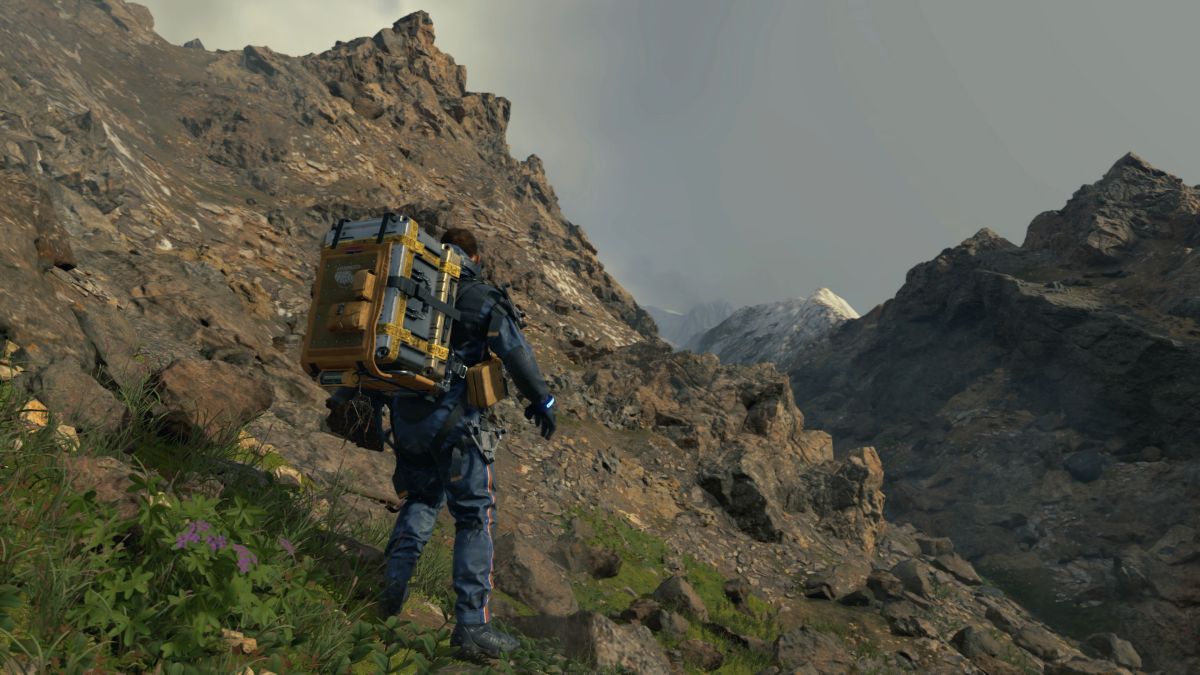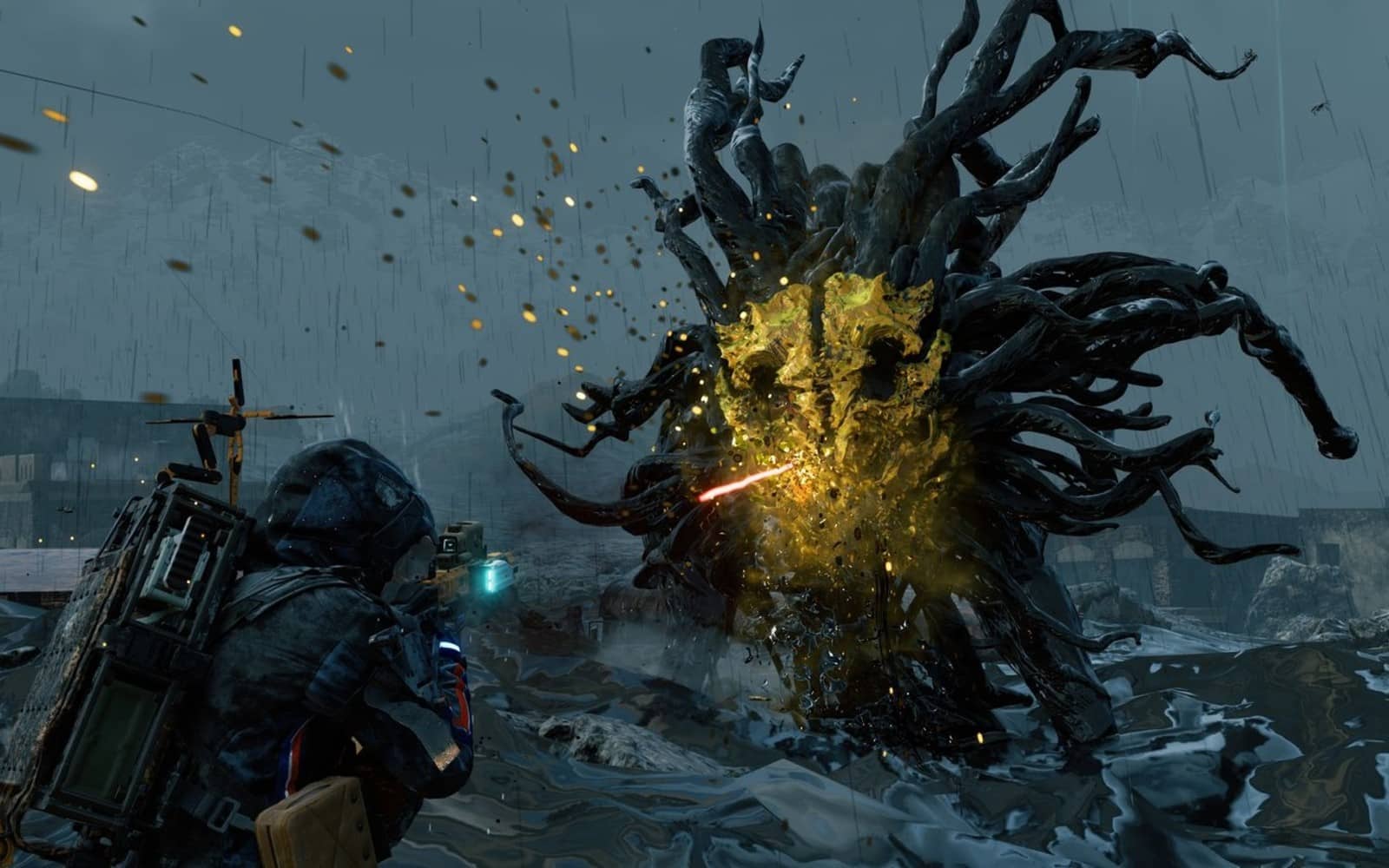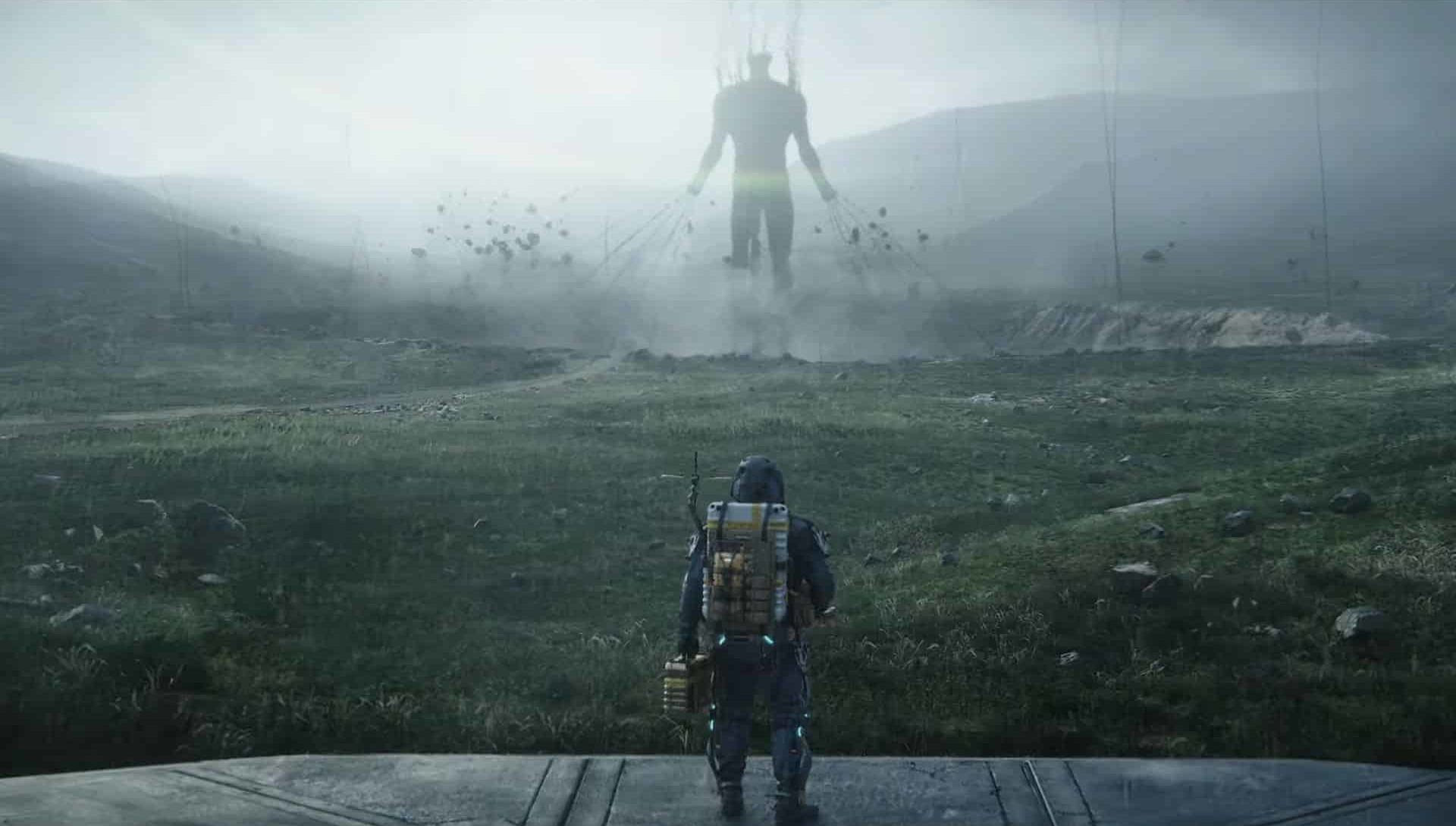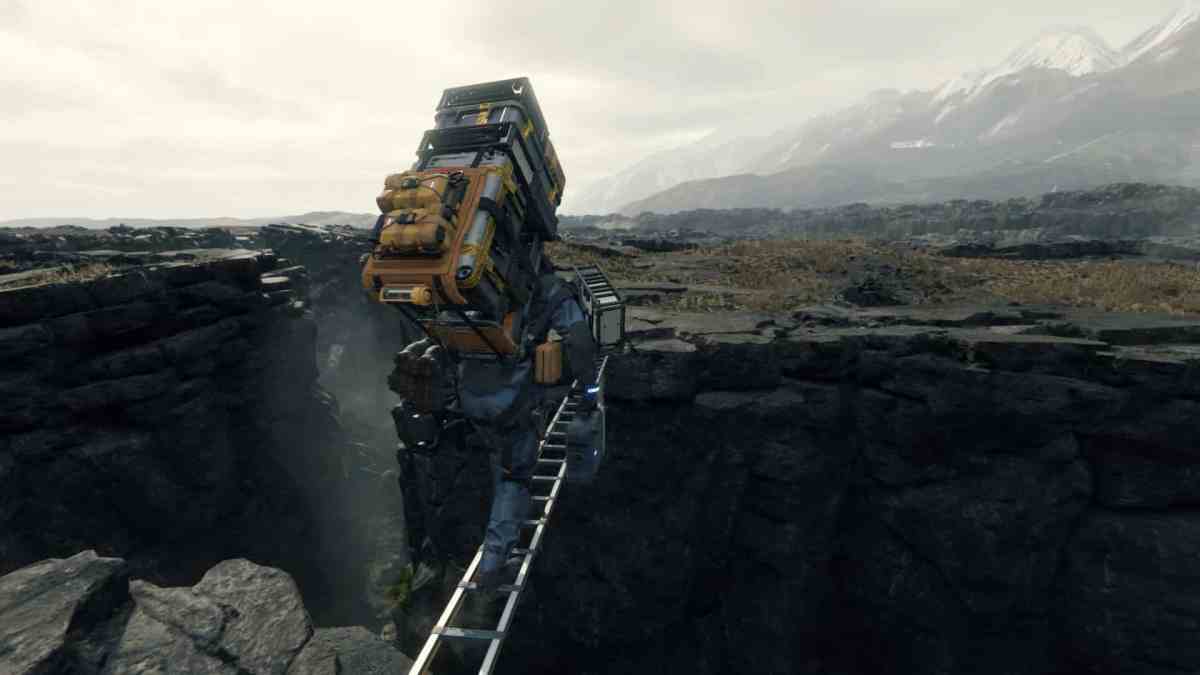It’s interesting to take a look at games after we’ve moved past the opening bubble of release. To set aside the mass dump of embargoed reviews, Twitter hot takes, and YouTube reaction videos riding the waves of trends and controversies. Once the dust of discourse has settled, you sometimes see a game in a completely different light. You also begin to see how the game might age. In the case of Kojima Productions’ Death Stranding, a bit of distance might have been just what was needed to see the game for exactly what it is — a massive, shaggy mess of a story, filled with strange and sometimes-alienating gameplay quirks, which all congeals into an experience that is somehow aging better than any game in recent memory.
Despite being released in the tail end of 2019, Death Stranding feels like the first game made as a reflection of life in 2020. The story of Sam Porter Bridges as he attempts to put the pieces of a broken United Cities of America back together by reconnecting scattered individuals and reforming what it means to be a society gained an entirely new meaning as COVID-19 rose in prominence in the early months of 2020. By the time March rolled around, terms like self-isolation, shelter in place, and quarantine became a part of our everyday vernacular. Only a few months into the year, and we all became the Preppers — individuals or families in Death Stranding who cut off from the world and chose to hunker down in their own personal shelters.
So many elements of Death Stranding feel impossibly prescient. From the global catastrophe, to how humanity has retreated to its own isolated pockets, to roving bands of MULEs who get a sort of high off of the social clout that comes from delivering packages, to Sam’s job of reconnecting people in this new world, it all hits so much harder after what we’ve lived through in 2020.

The beauty of Death Stranding’s barren and desolate world is undeniable. Though its landscape certainly resembles Iceland more than it does America, it’s hard to argue with just how meditative and calming it can be when the fantastic soundtrack and stunning environment work in unison. These moments, where we learn to become comfortable with being alone, ironically help us appreciate the subsequent human contact sprinkled throughout the game. Just another thing that’s become a major learning experience for a lot of folks living by themselves in 2020.
Even the horror elements of the game feel like they’ve gained new meaning this year. The first time I encountered a BT was terrifying. I held my breath, convinced that the strange creature would be able to hear me through the television. I was careful, but I also wanted nothing more than to get the hell out of the situation as fast as humanly possible. When I finally made it out of the dangerous area, I breathed out a heavy sigh of relief.
It sounds strange, but this is a similar arc to how I felt in real life the first time I made a post-pandemic-start run to the grocery store. Wearing my mask made me feel like a cosmonaut exploring a strange and hostile new world. I focused on the sound of my own breathing and used it as a metronome as I sped through the aisles at a pace faster than normal, but slow enough to not look like a weirdo. I avoided anywhere other people were lingering, the same way I steered Sam in a wide berth around BTs. When I made it back to my car, I ripped the mask off, finally feeling I could catch my breath.
Death Stranding also made me care about the things that I was carrying more so than maybe any other game in history. In a game like Cyberpunk 2077, I simply jam on the X button to hoover up any and all items highlighted in the environment as I go. If it isn’t bolted to the ground, you better believe that I’m snagging it for my inventory without having the slightest clue what it is.

In contrast, so much of Death Stranding is about balance, care, and knowing how far you can push yourself before your load becomes too much to bear. It also helps that, much of the time, the things you’re carrying mean something personally to either you or the person you’re helping. Sometimes it’s something as simple as Peter Englert and his pizzas, which ends up actually having a really fantastic payoff. But other times, like in one of the tutorial missions, it’s something else entirely.
An early mission tasks you with carrying the dead body of the president to an incinerator. In the world of Death Stranding, bodies need to be burned in order to avoid Voidouts, which are sort of mini-nuclear explosions that occur when the world of the living and the world of the dead become entangled. Like I said — the story’s a bit of a wonderful mess.
But throughout this mission, I moved with the utmost care in order to make sure I didn’t drop the body, even as its weight made the mere act of moving in a straight line a herculean task. However, I wasn’t being careful because it was the president’s body that I was carrying, but rather because said president is also Sam’s mother. As someone who’s lost family during the past year and was unable to physically be there at the end and throughout the grieving process, I find the physical intimacy that comes with death and loss in this game hits me much harder now than it did a year ago.
The game is oftentimes oppressively lonely, but there’s an inherent hope to it all that is utterly captivating. That hope comes from the fact that nearly everything you do in Death Stranding is about altruistically helping not only the other characters in the game, but other players across the world as well. The things you build have a chance of appearing in the world of another anonymous player and vice versa. After a long and treacherous journey to a new outpost, you can spend your hard-earned resources to make sure that the next person who comes along has a slightly easier time on that same trek.

I found myself setting up intricate and effective zip-line routes less for my own personal use and more to help ease the journey for those who would come after me. Death Stranding’s focus on players engaging in indirect cooperation for the sake of a shared goal feels similar to how each of us has a moral and societal obligation to help out at-risk and immunocompromised members of our community.
Death Stranding is also a tough game to classify because it doesn’t neatly fit into a predescribed genre. While Metal Gear Solid could always rely on its “Tactical Espionage Action” moniker, familiar terms like those don’t quite fit this time around. Prior to release, Kojima himself would often refer to it as the first game in a new “strand” genre… but quite frankly, that doesn’t make any sense. Its asynchronous multiplayer has shades of FromSoftware’s Soulsborne games and thatgamecompany’s Journey. And as for the main mechanic of physically walking from point A to point B… well, despite recently arguing against the reductive name of the genre, I’d say that Death Stranding can be placed alongside more experimental games like QWOP and Octodad as an actual, literal walking simulator.
What’s more striking about all of this is that Death Stranding isn’t the first time that Hideo Kojima has predicted the future in one of his games. I’ve been recently going through each of the Metal Gear Solid games, and while playing the final act of Metal Gear Solid 2: Sons of Liberty, I was completely floored by just how precisely that game predicted so many prominent issues and trends in the modern world. It dealt with the rise of dis/misinformation, which has become one of the most dangerous issues facing our society, especially over the past four years. Sons of Liberty tackled data profiling and manipulation, a topic that entered the spotlight recently with the Cambridge Analytica scandal. And the game commented on the prominent roles that memes play in passing on cultural information throughout society, long before the term gained widespread prominence. Kojima evidently has a sense for things.
In a time when so many games feel iterative, where next year’s sequel can fix the problems we had with this year’s version, Death Stranding feels wonderfully singular. Despite how big and strange it is, and despite the fact that it doesn’t always connect on its massive swings, I can’t help but marvel at just how much the game got right. It genuinely feels like one of the defining works of 2020. And don’t let the fact that it came out in 2019 fool you — sometimes it takes a while for a package to be delivered, especially in these trying times.






Published: Jan 5, 2021 11:00 am